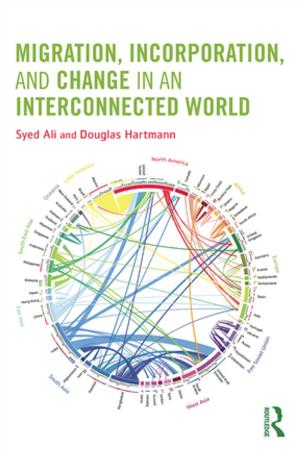Storage and Scarcity
New practices for food, energy and water
Nonfiction, Science & Nature, Science, Earth Sciences, Geography| Author: | Giorgio Osti | ISBN: | 9781317076537 |
| Publisher: | Taylor and Francis | Publication: | June 10, 2016 |
| Imprint: | Routledge | Language: | English |
| Author: | Giorgio Osti |
| ISBN: | 9781317076537 |
| Publisher: | Taylor and Francis |
| Publication: | June 10, 2016 |
| Imprint: | Routledge |
| Language: | English |
In an era of abundance, at least part of humanity has stopped thinking about the future provision of basic vital resources such water, energy and food. Storage actions, with all their variants whether real or imagined, are sources of innovation in the provision and treatment of crucial resources. This book deals with cases of water, food, energy and biodiversity storage as a response to a new era of scarcity. Examining multilevel storage policies, consumers’ practices and local organisations, author Giorgio Osti explores a variety of examples such as the need to stock agriculture produce, the industry and practices of food conservation, the role of artificial water basins in controlling floods and droughts and the development of batteries able to compensate for the intermittence of renewable energy sources. Storage and self-sufficiency can be achieved in many technical ways, at different territorial levels and according to different policies or philosophies. Being more a grasshopper or an ant - the two extreme positions - depends not only on the technologies available but also on different analyses of the environment and different attitudes to the future. This book offers an environmentalist perspective that uncovers hidden or absent activities of ultramodern societies that will be useful to students of environmental sociology as well as those researching and studying at the interface of environmental studies and geography.
In an era of abundance, at least part of humanity has stopped thinking about the future provision of basic vital resources such water, energy and food. Storage actions, with all their variants whether real or imagined, are sources of innovation in the provision and treatment of crucial resources. This book deals with cases of water, food, energy and biodiversity storage as a response to a new era of scarcity. Examining multilevel storage policies, consumers’ practices and local organisations, author Giorgio Osti explores a variety of examples such as the need to stock agriculture produce, the industry and practices of food conservation, the role of artificial water basins in controlling floods and droughts and the development of batteries able to compensate for the intermittence of renewable energy sources. Storage and self-sufficiency can be achieved in many technical ways, at different territorial levels and according to different policies or philosophies. Being more a grasshopper or an ant - the two extreme positions - depends not only on the technologies available but also on different analyses of the environment and different attitudes to the future. This book offers an environmentalist perspective that uncovers hidden or absent activities of ultramodern societies that will be useful to students of environmental sociology as well as those researching and studying at the interface of environmental studies and geography.















